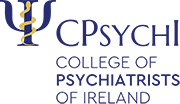In the 1980s, a remarkable breakthrough in trauma treatment occurred when psychologist Francine Shapiro stumbled upon a simple yet profound discovery while walking through a park. As she reflected on her own traumatic memories, she noticed that certain eye movements seemed to reduce the negative emotions attached to those memories, making her feel less anxious and more at ease. Intrigued by this observation, Shapiro embarked on a journey of controlled experiments and thorough studies to investigate the potential therapeutic benefits of eye movements. From these studies, Eye Movement Desensitisation and Reprocessing (EMDR) was born—a revolutionary treatment that has since become one of the most effective therapies for trauma.
The premise behind EMDR is grounded in the understanding of how the brain processes traumatic events. When individuals experience emotional or physical trauma, the brain often becomes overwhelmed, unable to fully process the traumatic information. As a result, the memory of the trauma is stored in its raw, unprocessed form. This can lead to intrusive memories, flashbacks, anxiety, and emotional distress when the brain attempts to access these unprocessed memories. EMDR aims to reprocess these memories by using bilateral stimulation—primarily through guided eye movements—to facilitate the brain’s natural ability to process information and integrate these memories in a healthier way.
Today, EMDR is widely used by therapists across the globe to treat trauma and its associated symptoms, including post-traumatic stress disorder (PTSD), anxiety, depression, and more. This treatment has gained immense popularity due to its efficacy and the quick results it often delivers. Whether used for individuals recovering from childhood trauma, military veterans suffering from PTSD, or anyone experiencing the effects of distressing life events, EMDR has proven itself as an invaluable tool in trauma recovery. Below, we explore the many benefits of EMDR and its transformative impact on mental health.
Understanding EMDR and How It Works
EMDR is a structured therapeutic approach that involves eight phases, each designed to help the client process their traumatic memories in a safe, controlled environment. The first step in EMDR is history-taking, where the therapist learns about the client’s past experiences and identifies the traumatic memories to target during the treatment. The therapist then works with the client to establish a sense of safety and relaxation, as the process can sometimes bring up intense emotions.
The core component of EMDR involves bilateral stimulation (BLS), which is typically achieved through guided eye movements. During this phase, the client is asked to recall a distressing memory while following the therapist’s hand movements with their eyes. The bilateral stimulation helps activate both hemispheres of the brain, facilitating the processing of the traumatic memory and allowing the brain to reframe and integrate the experience in a more adaptive way.
As the memory is reprocessed, the negative emotions associated with the trauma often diminish, and the client begins to experience the memory from a more neutral perspective. The therapist guides the client through a series of steps to desensitise them to the distressing memory and replace negative beliefs with more positive, empowering ones.
1. Changing Negative Beliefs and Self-Doubt
One of the most powerful aspects of EMDR is its ability to address and transform negative subconscious beliefs that often arise from trauma. Many people develop deeply ingrained belief systems based on their traumatic experiences or the messages they have received from others. These beliefs can shape their self-worth, behaviours, and interactions with the world. For example, a person who has experienced abuse may internalise feelings of worthlessness or believe that they are unlovable, leading to issues with self-esteem and trust.
EMDR helps to identify and challenge these negative beliefs by reprocessing the traumatic memories associated with them. Through bilateral stimulation and targeted reprocessing, EMDR enables individuals to gain a new perspective on their experiences. Over time, clients can begin to replace negative beliefs, such as “I’m not good enough” or “I’m unworthy of love,” with healthier, more empowering beliefs like “I am worthy of love” and “I am capable of growth and healing.” This process of cognitive restructuring is a powerful tool in rebuilding self-confidence and resilience after trauma.
2. Trauma Recovery: A Powerful Tool for PTSD and Beyond
EMDR is perhaps best known for its effectiveness in treating trauma and PTSD, especially for individuals who have experienced severe, life-threatening events. PTSD is a mental health condition triggered by experiencing or witnessing a traumatic event, and it is characterised by flashbacks, nightmares, hypervigilance, and emotional numbing. Many veterans, survivors of abuse, individuals involved in accidents, and first responders have benefitted greatly from EMDR in their recovery process.
The therapy’s ability to desensitise individuals to traumatic memories helps to reduce the emotional intensity of flashbacks and intrusive thoughts. By reprocessing distressing memories, the brain is able to store them in a way that no longer causes immediate distress. For veterans, survivors of assault, and others affected by trauma, EMDR offers a pathway toward healing, offering relief from the emotional and psychological burden of their experiences.
The benefits of EMDR go beyond the reduction of symptoms. As individuals work through their traumatic memories in a safe and controlled environment, they can reclaim their lives, rebuild relationships, and regain a sense of control. EMDR empowers clients to acknowledge their pain, process it, and ultimately move forward in a healthier way, reducing the grip of trauma on their daily lives.
3. Quicker Results Than Traditional Therapy
One of the standout features of EMDR is its ability to produce quicker results compared to traditional talk therapies. While talk therapies such as cognitive-behavioural therapy (CBT) can be effective in addressing trauma, they often require an extended period of time to achieve significant results. With EMDR, many clients report noticeable improvements after just a few sessions, particularly in terms of reducing the intensity of trauma-related symptoms.
The process of bilateral stimulation helps the brain process traumatic memories more efficiently, which may explain why EMDR often leads to faster outcomes. Clients may find that their anxiety, flashbacks, and negative beliefs lessen significantly after a relatively brief course of treatment. For many, this rapid progress is not only encouraging but also life-changing, as they begin to experience relief from symptoms they may have struggled with for years.
EMDR’s speed and effectiveness make it an attractive option for those seeking a more immediate resolution to their trauma-related symptoms. Individuals who have previously felt frustrated or disheartened by the slow pace of traditional therapies may find that EMDR offers the breakthrough they need to make real progress in their healing journey.
4. A Treatment for Everyone: EMDR for All Types of Trauma
While EMDR is widely recognised for its success in treating PTSD, it is also an effective treatment for a broad range of trauma-related conditions, including anxiety, depression, grief, and phobias. Trauma does not only occur in extreme cases such as war or natural disasters—it can also result from childhood neglect, difficult relationships, or even everyday stressors that accumulate over time.
In fact, EMDR can be beneficial for anyone who has experienced distressing or overwhelming events, regardless of the severity of the trauma. For example, individuals dealing with work-related stress, chronic illness, or relationship difficulties can benefit from EMDR’s ability to process and desensitise the emotions associated with these experiences. EMDR can also be helpful for those struggling with generalised anxiety, panic attacks, and other mental health concerns that stem from past experiences.
For individuals dealing with less severe trauma, EMDR offers a way to process emotions, release pent-up stress, and find peace with their past. The therapy is adaptable to various needs, making it accessible to people from all walks of life.
5. Empowering Clients to Live a Happier, More Peaceful Life
The ultimate goal of EMDR is to empower clients to live happier, more peaceful lives free from the psychological burden of unresolved trauma. As clients work through their traumatic memories and negative beliefs, they often experience a profound sense of relief and liberation. The reduction in distressing symptoms, such as intrusive thoughts, flashbacks, and anxiety, allows individuals to reclaim their lives and pursue their goals without being constantly held back by the weight of their past.
EMDR also promotes emotional resilience, helping individuals develop healthier coping mechanisms and a stronger sense of self. As clients begin to reprocess their traumatic memories, they often experience greater emotional stability, improved relationships, and a renewed sense of purpose.
The transformation that occurs through EMDR can be life-changing, helping individuals to heal from the inside out and live a life that is no longer defined by their trauma. The empowerment that comes from overcoming emotional wounds is one of the most enduring benefits of EMDR therapy.
Conclusion
EMDR is one of the most effective and transformative treatments for trauma available today. Through its unique combination of bilateral stimulation and reprocessing, it helps individuals reduce the emotional intensity of traumatic memories, change negative beliefs, and ultimately regain control over their lives. Whether treating PTSD, anxiety, depression, or everyday stress, EMDR offers a faster, more efficient path to healing than traditional therapies. Its widespread success in trauma recovery has made it a go-to treatment for individuals worldwide, offering a beacon of hope to those seeking relief from the lasting effects of trauma. With its proven track record and ability to create lasting change, EMDR stands as one of the most powerful tools in the field of trauma therapy.












